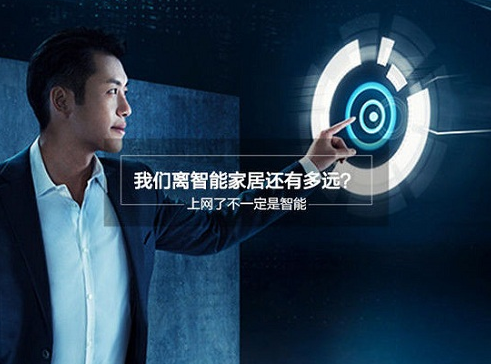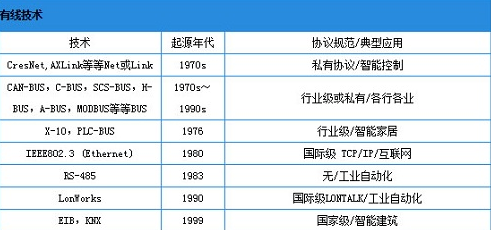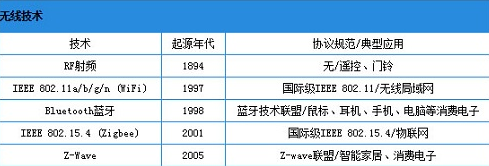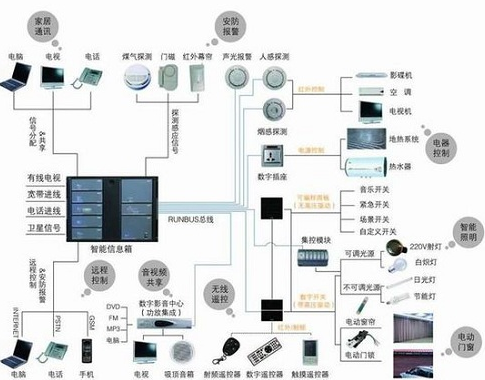Recalling the related exhibitions in the consumer electronics field this year, from CES to AWE to CES ASIA, smart homes are hot. Then take the road to VR and AR's public opinion, from manufacturers to the media, have advocated this year is the first year of smart home. If you look at the technology information every day, it is likely to create the illusion that "it will become so smart that Stark Building (Iron Man) will not be long after the home."

However, when you come back and look around, whether it is rich or poor, it seems that few smart home products are used. Just like a difficult period of unbearable looking back, advocating high-yield blows to believe in yourself, and then returning home to find that there is no food that can be eaten. Is it high-yield, where is the grain that comes from? It is the first year of smart home. Why aren’t there many people using smart homes? It is an interesting question.
It’s just a few reasons why you can’t call it, you can’t use it, it won’t work, it’s not easy to use. It can't be used or not, but it's actually caused by bad use. Looking back at the popularity of smartphones, although it has been around for many years, it has really begun to spread rapidly, even after the launch of the particularly useful product we all know. Once the product is easy to use, the market reflects a warm response, the cost of the supply chain is reduced, and people who will not use it will actively learn to use it, and the problem will be solved.
The smart home industry started in China is not too late, just because the industry was chaotic in the past, some companies re-marketed and light products, and the consumers bought a lot of useless things, which broke the reputation of the entire industry. The insurance industry of the year). Nowadays, as more and more big companies join, the market becomes more standardized, but the most deadly problem is still not there.
Agreement and standard confusion
Microsoft's Windows, Google's Android, and Ma's Alibaba, their achievements make all entrepreneurs eager to become their own products and then take the dividend of industry development. Nowadays, mobile phones, tablets and other platforms have been divided up. PC systems are hard to accept even Microsoft's own upgrade users, and others don't even want to squeeze in. In this context, the living room has naturally become a battleground for the military.
Sony launched the first generation of PlayStaTIon, and Microsoft introduced the ambition of occupying the living room when it launched the Xbox. Of course, none of them have done so until now, but to some extent, in some homes Sony has taken over everything.

I don't know if you remember that the earliest domestic proposal of ecology is not LeTV, but the brand of coarse grains under the Monkey King. It’s just that Xiaohe’s defeat is also Xiaohe. When the mobile phone was too popular, no one paid attention to these details. Although LeEco's ecology has always been elusive, it has established a content ecology in the era of piracy, and it has a good vision. Even the founders of the domestic Alpha robots say that there may be a robotic ecology in the future.
Everyone wants to be an entrance, everyone wants to be a platform, so each one is pushing their own software agreements, but this brings us not a lot of useful platforms, but a lot of bad platforms. Let's take a look at the complicated connection technology.

The application of wired connection is currently rare in the field of personal consumption. The widely used protocol in foreign countries in the past was the X-10 protocol, which is a communication protocol for remote control of electronic devices by using power lines as the connection medium. However, the X-10's functional modules are installed on the switch socket, and the anti-interference ability is poor, which is not in line with China's national conditions in that era, so it has not been introduced on a large scale.

Wireless technology has great advantages over wired technology, but the biggest problem at present is that the major manufacturers want to use the protocol they advocate or adopt as the unified agreement of smart home, which leads to the current smart home field. The situation of "three countries standing up and struggling with each other" based on WiFi, Bluetooth and Zigbee was formed. Among them, Bluetooth and WiFi applications have been widely used, and everyone should be familiar with them. Compared with them, Zigbee's main advantages are low power consumption, low cost, and strong networking capabilities, but its transmission rate is less than 1/4 of Bluetooth. Hard wounded.

Although the agreement is already chaotic, but major manufacturers will continue to propose new agreements, such as Samsung, ARM, Nest three companies launched Thread. As for the software agreement, with the development of smart home appliances in the past two years, the number is even more spurt. In addition to Siemens' home appliances, Haier and other established home appliance companies to launch their own software agreements, Jingdong, Tencent, 360 and other Internet companies also want to divide A piece of cake, Huawei also launched the Hilink protocol in conjunction with Boardlink at the beginning of the year.
The confusion caused by the protocol is the separation of the experience. For example, if you accidentally buy smart appliances with 5 different protocols, you may need 5 more apps in your mobile phone, not only the trouble, but also the home appliances. Data exchange has become a "common home appliance that can be connected to the Internet and can be remotely controlled by mobile phones", completely losing the original meaning of smart home.
Super Tweeter Bullet,Tweeter Driver,Speakers For Concert Speakers,Speakers For Performances
NINGBO RFUN AUDIO TECHNOLOGY CO.,LTD , https://www.mosensound.com